Shin Bet chief said to warn Temple Mount curbs on Ramadan could spark holy war
Ronen Bar reportedly tells cabinet that limiting Arab Israelis’ access to Al-Aqsa could turn Gaza conflict into Jewish-Muslim fight, playing into hands of Hamas; IDF said to warn of manpower issues
The head of the Shin Bet security service reportedly warned ministers that Israel’s war against the Hamas terror group could expand and take on overtones of a religious conflict if restrictions are imposed on the entry of Arab Israelis to the Al-Aqsa compound atop the Temple Mount in Jerusalem during the approaching month of Ramadan.
Reports late on Sunday said Prime Minister Benjamin Netanyahu instructed security officials at a cabinet meeting that evening to present options for age criteria and quotas that could be placed on Arab citizens wishing to visit the holy site for the holiday, in line with proposals advanced by far-right National Security Minister Itamar Ben Gvir.
According to a report by the Kan public broadcaster Monday, Shin Bet director Ronen Bar warned at the meeting that imposing restrictions on Arab Israelis would spark an angry backlash and play into the hands of Hamas, which has sought to stir violent Arab unrest inside Israel from October 7 and amid the war in Gaza, now in its fifth month. Hamas called its mass-murdering October 7 onslaught on southern Israel “Operation Al-Aqsa Flood,” in an effort to claim religious legitimacy for its atrocities.
Previous reports had noted opposition to the curbs voiced by Shin Bet and Israeli Defense Forces representatives at the Sunday meeting, alongside support for the curbs from police, though not police chief Kobi Shabtai.
With Ramadan set to begin the second week of March, Israeli officials have expressed worries that the sensitive period could amplify tensions stemming from Israel’s war against Hamas in the Gaza Strip, which has sparked worldwide Muslim anger toward the Jewish state.
The Temple Mount, known to Muslims as the Al-Aqsa Mosque compound, is considered the holiest place in Judaism, where two biblical Temples once stood, and the third-holiest site in Islam, making it a central flashpoint of the Israeli-Palestinian conflict.
Hundreds of thousands of Muslims crowd the site each Ramadan as religious fervor is heightened. While Israel has imposed restrictions on Palestinian access during times of heightened security tensions, it has refrained from imposing those rules on the country’s Muslim minority.
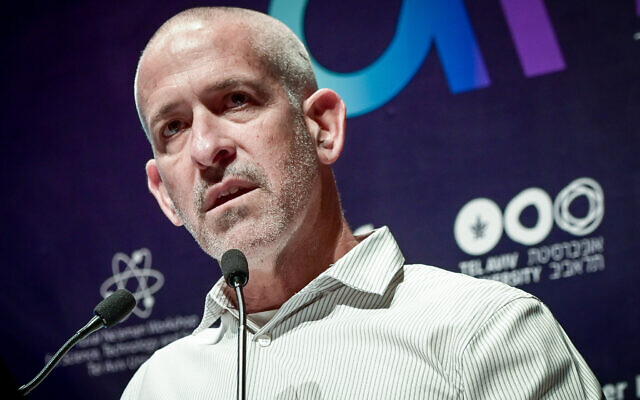
According to the Kan report, Netanyahu called restrictions “logical,” noting that Israel is “in a situation that we have never been in before.”
Bar warned, by contrast, that the moves could harm efforts by the government and security officials to keep the ongoing war as a conflict solely between Israel and Hamas.
“Actions of this type may create a false sense of war between Jews and Muslims,” Bar said, noting that Israel’s Arabs had largely refrained from coming out in support of Hamas.
“Restrictions on Arab Israelis will only cause harm,” Bar said. “[Arab Israelis] haven’t demonstrated since the beginning of the war, and restrictions are exactly what could incite them.”
The Kan report did not cite a source for the quotes.
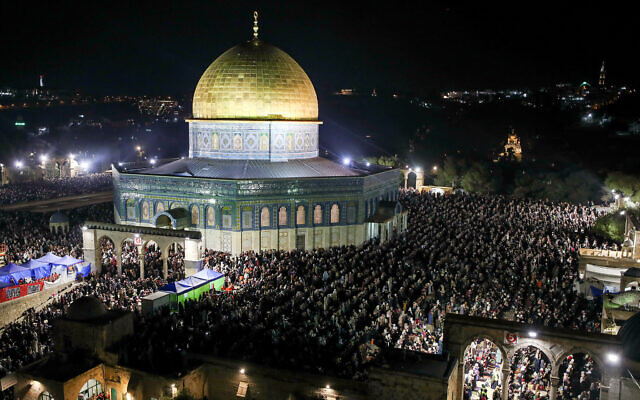
War erupted on October 7 when Hamas led a devastating attack on Israel from the Gaza Strip that killed 1,200 people. Some 3,000 attackers burst through the border and rampaged murderously through southern regions amid horrific atrocities of gang rape, torture, and mutilation of victims.
According to two officials cited by Kan, the restrictions would bar all Arab Israelis under the age of 40 from accessing the mosque compound, with entry restrictions for women and children to be decided in the future.
Security officials reportedly told the meeting that most troublemakers from among Arab Israelis or from East Jerusalem are below the age of 40. That includes members of banned organizations, as well as those who have no affiliation but are known to the Shin Bet and police.
The restrictions would be in place for the first week of Ramadan, the report said, after which a decision would be made on continuing the arrangements or easing them.
The sources said that Netanyahu backed the proposal and asked for a more detailed examination of the idea.
On Sunday, the Prime Minister’s office issued a vague statement that said the premier had “made a balanced decision that allows freedom of religion with necessary security limits, which have been set by professional officials.”
According to a Channel 13 report on the meeting, Bar warned that Hamas would take advantage of ill will created by the restrictions to turn the conflict into a holy war.
Ben Gvir, whose responsibility covers the police, dismissed Bar’s warning according to the channel, referencing failings by the Shin Bet and IDF in identifying Hamas’s October 7 plans and preparations. Bar has personally admitted to failures on the matter.
Defense Minister Gallant pushed back against Ben Gvir, Channel 13 said. “A strategic warning by the Shin Bet is not something that is presented every day. I suggest we look at it responsibly,” he reportedly responded.
Army officials also reportedly expressed worries that if anger did boil over, it could impact IDF manpower issues, with the army already fighting a war in Gaza and dealing with hostility in the north.
“We need to make decisions and understand what the consequences are, and what will happen if it is necessary to mobilize forces from Gaza to [the West Bank],” IDF Chief of Staff Herzi Halevi told ministers.
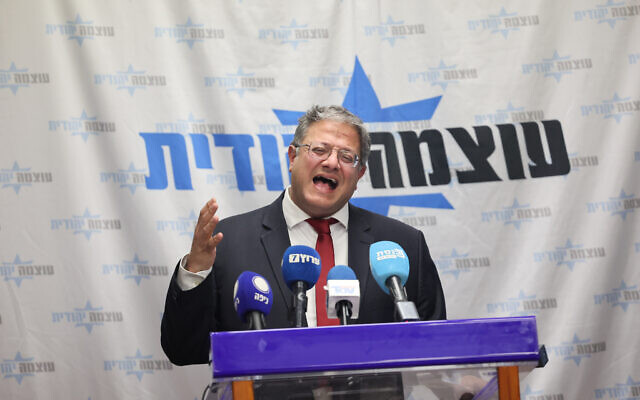
IDF Operations chief Brig. Gen. Oded Basyuk cautioned that a multifront escalation “will force us to move forces from one place to another,” according to the Kan report.
Though previous reports have said that Israel Police support restrictions, Kan reported that police chief Shabtai pushed back against worries that Arab Israelis could foment unrest.
“The Arab Israelis are behaving excellently,” Shabtai told the Sunday cabinet meeting. “They should be given a medal. [Hamas] tried to incite them during the war, and it didn’t happen.”
“You shouldn’t take everything for granted,” Ben Gvir responded. “That is also a concept of the security establishment. Just as Jews are restricted from entering the Temple Mount, Arabs should also be restricted. We are in a time of war and there is a likelihood of terrorist attacks. My opinion and the opinion of the police are one.”
Shabtai reportedly retorted, “Our opinion is not unanimous. We propose different restrictions.”
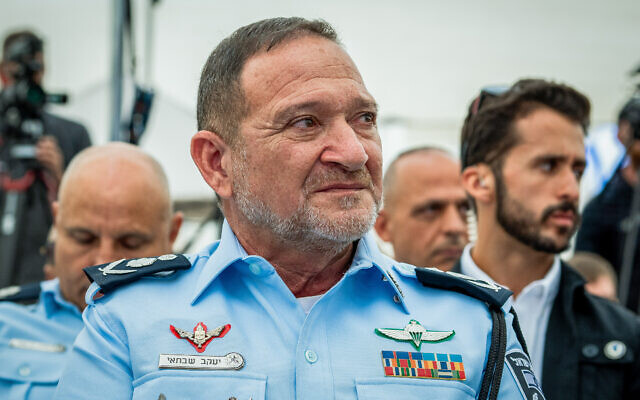
The Channel 13 report detailed a police compromise that would ban 5,000 Arab Israelis considered troublemakers.
A source told the network that “not only the IDF and the Shin Bet make security decisions. The responsibility for security on the Temple Mount is in the hands of the police, and they have ultimate discretion regarding Ramadan.”
Ben Gvir had reportedly also called for additional measures such as limiting attendance at the Temple Mount to 5,000 and giving police permission to storm the site if there is any display of support for Hamas or its leader Yahya Sinwar.
Both proposals were rejected. According to Channel 13, Netanyahu is looking at allowing 40,000-50,000 Arab Israelis onto the Temple Mount during each day of the month of Ramadan.
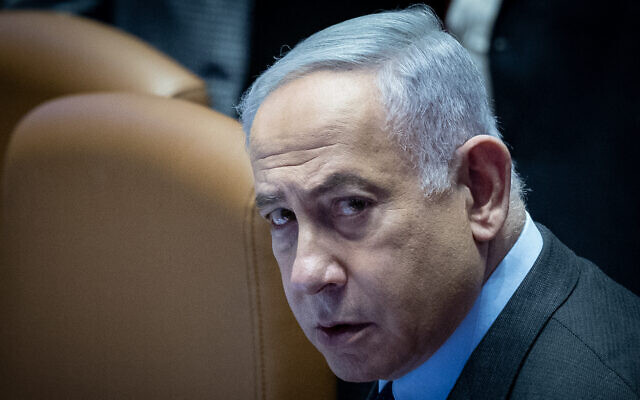
Sources in the government criticized the haphazard way the meeting was carried out, Channel 13 reported.
Attorney General Gali Baharav-Miara has reportedly cautioned against age-based limitations on Arab Israelis who wish to pray at the Al-Aqsa compound atop the Temple Mount during Ramadan, saying that such a step would likely face legal obstacles.
Meanwhile, Kan reported all those who attended the cabinet meeting were required to sign a secrecy agreement opening them to prosecution if they leaked any details.
Netanyahu has been frustrated by the sieve-like nature of the cabinet meetings, including those dealing with sensitive security matters, as discussions are often rapidly leaked to the media.
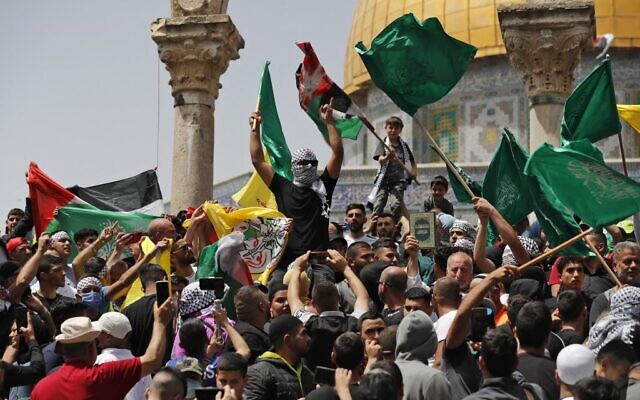
No comments:
Post a Comment